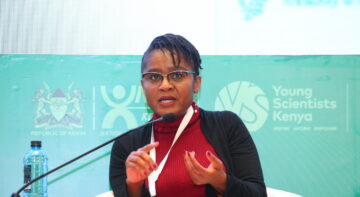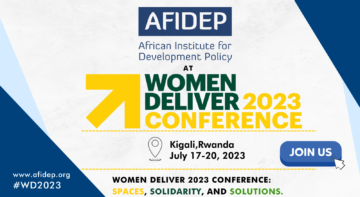News

A unique panel discussion this week provided refreshing strategies from experts in education, civil society, the private sector for bringing about the shift in policy needed to address the problem of unemployable graduates from Kenya’s tertiary institutions. At the centre of these discussions, which were held in the format of Science Policy Café at a Nairobi hotel, was the role of transferrable skills in removing the mismatch between what universities and tertiary colleges teach and what the workplace demands.
Transferable skills are the “soft” or non-cognitive skills that can be applied across different work and life situations including communication and collaboration, critical thinking, creative thinking, problem-solving, leadership, and character skills.
With the theme: Unlocking the Demographic Dividend and Power of Youth to Propel Kenya’s Socioeconomic Transformation Agenda, the aim of the Café was to discuss the role of transferrable skills and to find ways of inculcating them in the education system at a time when reforms in the system are underway.
The Cafe was co-hosted by the African Institute for Development Policy (AFIDEP) and the United States International University (USIU).
The problem of graduates failing to find gainful employment has become a major sticking point amidst an urgent need for governments to put in place mechanisms to take advantage of the impending demographic transition to harness a demographic dividend. The demographic dividend is the accelerated economic growth that is initiated by a rapid decline in fertility rate (number of children per woman) and mortality. The result is a change in the age structure from one dominated by child dependents to one dominated by economically productive working-age adults.
Prof. Jimmy Macharia, the Dean of the School of Science and Technology at USIU, who moderated the discussion, said the university has identified the gap in its curriculum which prevents the desired linkage between universities and industry. USIU has come up with a programme known as LAGIC. It seeks to link academia, government, industry and civil society.
A panellist, Prof. Okwach Abagi, the Director of the Centre for Research and Development, pointed out that sub-Saharan Africa achieved the greatest gains globally in participation in primary and secondary levels over the period 1999 and 2012. Over the last decade, university enrollment in Kenya has risen by 320 percent to stand at 600,000 in 60 universities. It is however in crises including in: staffing; quality; infrastructure; equipment and facilities; lack of systematic policy analysis and support by other sectors; ethnicity; and low staff morale.
The World Bank’s Senior Protection Specialist, Dr Cornelia Tesliuc, highlighted the role of evidence-based policies in guiding governments’ interventions for youth employment. “Gains have been made in education, but not enough to meet employers’ demand for skills,” she observed. The Bank takes three main approaches to promote transferrable skills: training and internships to improve youth employability; support for job creation; labour market information and policy development.
There was near consensus on the need for a comprehensive and radical education master plan that will produce well-rounded graduates who are not only job seekers but job creators. Calls were made for radical reform of training for teachers too and for the Government to create space for dialogue and partnerships between tertiary institutions and industry. Some went as far as to demand that mid-level and technical training colleges upgraded to universities revert to their previous status.
Young participants, represented on the panel by a USIU student leader, Santana Muthoni, called for the establishment of a mechanism for tapping into and promoting information and communication technology (ICT) innovations for which Kenya is well known. A need was seen to involve industry, as “the end-users” of tertiary education graduates in the formulation of tertiary level curricular.
A key recommendation was that research be undertaken to gather comprehensive evidence about the mismatch between graduates’ competencies and the needs of the labour market. Another was that institutions of higher learning create formal linkages with industry to ensure that effective channels for identifying skills needs of industry become known to tertiary institutions in order to enable them to draw up responsive curricular.
Malawi’s Ambassador to Kenya, Dr Perks Ligoya, was of the view that African leaders are increasingly committing themselves to changing education systems to make them more responsive to industry needs. There is now recognition of the role of middle level technical and vocational colleges and making the curricular more demand-driven. Malawi has plans to set one community-college in every constituency and go further by giving constituencies the latitude to determine what will be taught to ensure local relevance.
The UNFPA Representative in Kenya, Mr Siddharth Chatterjee, warned about the need to find ways of producing employable graduates, failure of which Africa risks turning the demographic dividend into a disaster. He called for more systematic private-public partnerships and meaningful inclusion of women. He noted that the global community has taken the cue and endorsed the Sustainable Development Goals, particularly SDG 4, which seeks to ensure inclusive and equitable quality education.
The Secretary of the National Economic and Social Council (NESC), Dr Julius Muia, shared insights about the Government of Kenya’s response to high youth unemployment and under-employment. First is affirmative action that reserves 30 percent of government tenders for youth and women. Megaprojects being implemented namely: Standard Gauge Railway, the Lamu Port and Southern Sudan-Ethiopia Transport (LAPSSET) corridor and enhanced electricity generation will boost youth employment. Additionally, the Government has created the Youth and women enterprise funds and is reviewing its economic policy to moderate the interest rate regime and control expenditure.
Dr Meshack Opwora who represented the Principal Secretary for Vocational and Technical Training, Ministry of Education, spoke of Kenya’s current shift from competition to competency-based education. He acknowledged that stakeholders’ involvement is critical in education reform. He, however, noted the difficulty of mobilising funds needed to make required changes in policy which might contribute to the observed low demand for research evidence.
Anthony Mugo is the Policy Engagement and Communication Manager at the African Institute for Development Policy. anthony.mugo@afidep.org.
Related Posts





